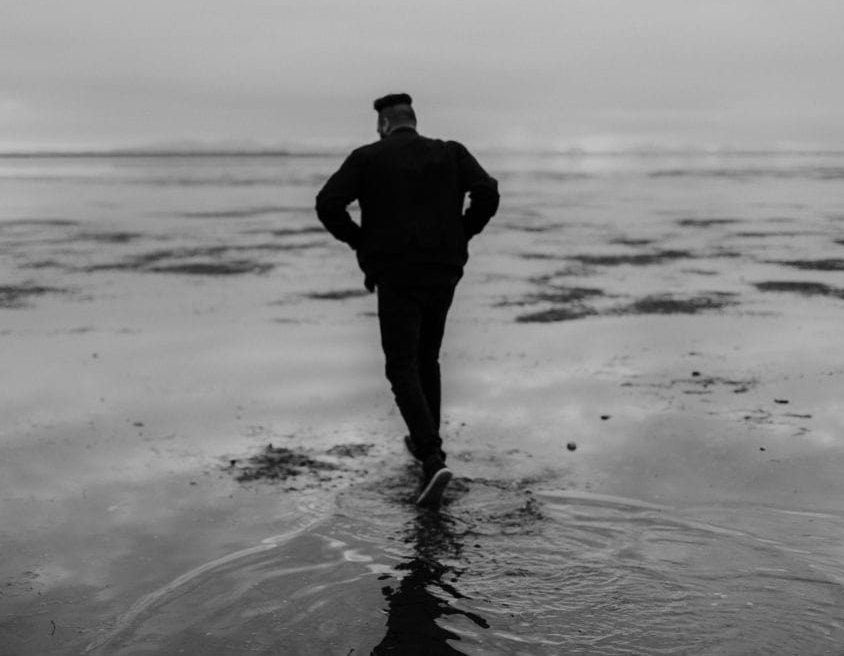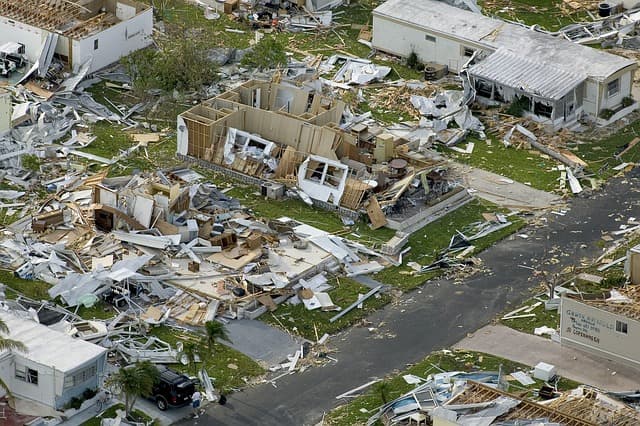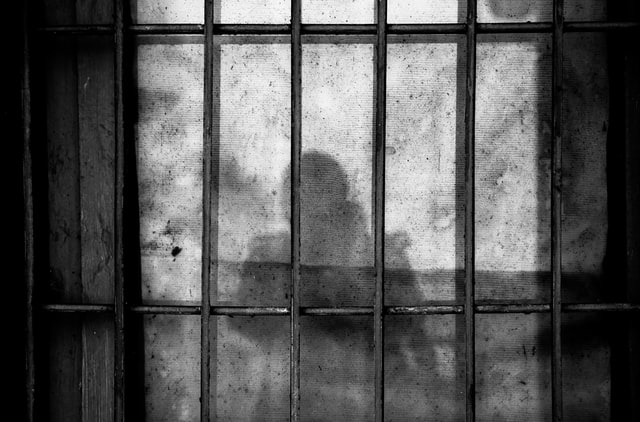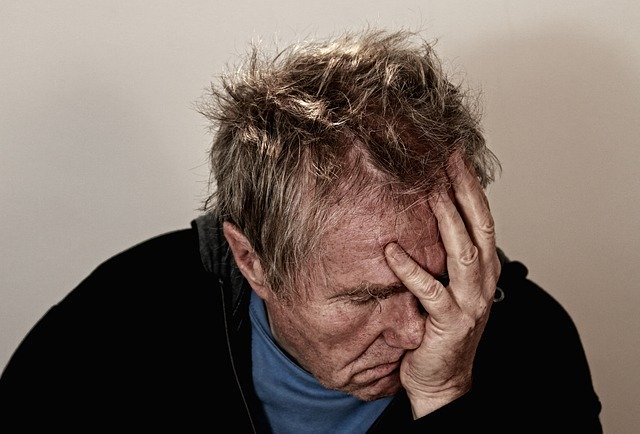
12 Silent Triggers of Complicated Grief and PTSD
Traumatic events happen to everyone at some point in their lives. This could be the loss of a loved one, being the victim of a violent assault, or experiencing hardship during military deployment.
It’s important to understand how both complicated grief disorder and PTSD are different, but also how they overlap. One thing both grief and trauma have in common is their initial triggers.
Triggers can mean anything that may spark a memory or thought of a past traumatic experience. Some triggers are very common and obvious, others are much less clear and can be challenging to avoid.
Living with trauma and grief is difficult and can be a constant battle. Understanding the initial triggers that can lead to complicated grief and PTSD symptoms can significantly help you to avoid and reduce episodes of distress and panic.
Do you need to learn more about the symptoms of Complicated Grief and PTSD?
Signup below for a guide on how to spot silent triggers and symptoms.
Complicated grief and PTSD symptoms
Complicated grief and PTSD symptoms can be similar, but there are some differences. Below are the common symptoms associated with both.
What are the main grief signs and symptoms?
Losing a loved one can be one of the most devastating and traumatic experiences in life. Unfortunately, we all lose the people we love in life. But for some, this experience can hit much harder and become debilitating for them.
When losing a loved one, most people naturally go through a period of sorrow, numbness, and often develop feelings of anger and/or guilt.
Those who suffer from complicated grief, or complex grief disorder, go through a similar grieving process, but the feelings often don’t disappear over time. Instead, these painful feelings of loss continue for much more extended periods. This makes everyday life much more complicated and distressing.
For some people with complicated grief, the feeling of loss can become so painful and long-lasting that they struggle to recover and are unable to resume their own lives.

The main signs of complicated grief are similar to normal grief for the first few months. If any of the following symptoms persist after over a long period, you may have what we call complicated grief.
- Intense sorrow
- Deep emotional pain
- Constant rumination over your loss
- Unable to focus on anything but your loss
- Deep focus on reminders of your loved one or complete avoidance of reminders
- Intense and persistent longing for your loved one
- Denial over the death
- A feeling of numbness and detachment from other loved ones, society, or the planet
- Feeling bitter about your loss
- A belief that life now has no meaning or worth
- Distrust in other including your family, friends, and the public
- Unwilling or unable to enjoy anything in your personal life
- Unable to stick with your regular routine
- Isolate from others and turn down social invitations
- Persistence feelings of depression and deep sadness
- Blaming yourself for what happened or denying the truth
- Wishing you had died too or in place of your loved one
What are the main trauma signs and symptoms?
Usually, PTSD symptoms are diagnosed one month after the traumatic event has taken place. Before this, the symptoms listed below are often completely typical and expected after experiencing a traumatic event.
The problem with PTSD symptoms is that they can sometimes take several months or even years to appear following the traumatic event. For example, a person abused as a child may not experience PTSD symptoms until much later in their adult life.
There are three main types of symptoms associated with this disorder:
- The frequent re-experience of the trauma via distressing recollections of the traumatic event. This usually includes nightmares and flashbacks.
- Emotional numbness and avoidance of places, people, and/or activities associated with the traumatic event.
- Increased arousal episodes such as difficulty concentrating, feeling jumpy, odd sleeping patterns, or no sleep at all, and being easily irritated and angered.
12 Silent Triggers That Can Impact Trauma and Grief

Below are twelve common triggers that can impact trauma or grief, leading to PTSD or Complicated Grief.
1 Family Issues
Issues in families can be very complicated. A family can experience collective trauma, and or one family member’s trauma can affect the rest of the family.
Collective family trauma is usually caused by the sudden tragic loss of a family member. This is most common when losing a family member to an accident, assault, health issue, or divorce.
Sometimes, one family member’s trauma or transition into a new role in life can impact the whole family. The abuse of a child by another family member is likely to trigger trauma for everyone in the family. As is, two members of the family disconnecting from each other through disagreement or a significant fallout.

2 Cancer
Cancer is a tragic and sometimes unprecedented event. Cancer can develop quickly and end a person’s life in a very short time. Developing cancer and dealing with it is an extremely traumatic experience for individuals and their loved ones.
Trauma can be created through the experience of having cancer and grief through the loss of a loved one who lost their battle with the disease.
PTSD is also common among cancer survivors. Future trips to the hospital for regular checkups can bring on flashbacks inducing extreme episodes of panic and anxiety. Also, the fear of cancer recurrence can lead to severe anxiety and depression.

3 Combat
During combat, soldiers often experience incredibly traumatic events and lose close friends and battle buddies. It is common for soldiers to suffer from both PTSD and Complicated Grief as a result.
Soldiers are some of the worst affected individuals when it comes to PTSD. Triggers can come in many forms from loud noises, people shouting, flashing lights, and the sound of a washing machine spinning.

4 Natural Disasters
Natural disasters such as earthquakes, tornados, hurricanes, forest fires, floods, volcanic eruptions, landslides, or tsunamis can all lead to PTSD. Lack of food and security or necessities for a stable environment can be short or long term. Young children caught up in extreme natural disasters can develop PTSD at a later age.
Natural disasters are particularly insidious as they affect huge groups of people at one time. This can lead to common types of PTSD, such as “Survivor Guilt,” in which the people affected feel guilty about surviving the natural disaster and may even wish they had died.

5 Childhood
Childhood trauma is a deeply complex issue. Many psychologists believe that we all carry some form of childhood trauma into our adult life. For some people, this trauma can be much more problematic, depending on their childhood experiences.
Sometimes, the trauma witnessed or experienced can be so deep that the individual unconsciously pushed the memory deep into their mind. Therapy often leads to people remembering childhood traumatic experiences that have been subconsciously affecting their adult life.

6 Sexual Violence/Trauma
The experience of sexual harassment, rape, assault, violence, abuse can lead to many PTSD symptoms. Survivors of sexual violence/trauma commonly develop a fear of going out into the public alone. Adverse experience when reporting or not reporting can have long-lasting effects. They may also develop eating disorders, substance abuse, physical conditions like digestive issues, and a strong disinterest in sex.

7 Accidents
Tragic accidents in which somebody is seriously hurt or losing a loved one can lead to PTSD and Complicated Grief. Nothing can prepare someone for the life-changing effects of a terrible accident.
A person or their loved one may become disabled or even die as a result. This sudden change in a person’s life can create significant trauma and complex grief.

8 Imprisonment
Prisons are uncomfortable, distressing, and often dangerous places. Those who have been imprisoned likely develop trauma from their experiences within the prison. This could be a result of a violent attack, bullying, mundane routine, extreme isolation, lack of daylight, plus many other traumatic experiences.
Also, the release and entry back into society and the stress and rejection of dealing with the stigmas and labels around having a criminal record can be distressing. Having a family member who has been incarcerated exacerbates the effects of imprisonment.

9 Chronic Pain
Chronic pain can be a vicious cycle. Trauma can lead to chronic pain and chronic pain and lead to PTSD. Chronic pain can lead to grief, grief can amplify chronic pain. Both PTSD and grief can lead to the person feeling completely helpless.
Hyperarousal symptoms often lead to tense muscle pains that can quickly become chronic pains. The anxiety and hypervigilance caused by this pain lead to more pain.

10 Compassion Fatigue
Compassion fatigue is a condition in which the individual suffers from emotional and physical exhaustion from short or long term caregiving. The difference between professional caregiving and caregiving that can lead to compassion fatigue often lies in who is being cared for. Caregivers who are taking care of family members or close friends often ignore signs of fatigue.
Compassion fatigue unaddressed can lead to indifference over others’ suffering or even abuse of those being cared for. This diminished ability to feel empathy and compassion for others can indirectly lead to triggers of PTSD.

11 End of Life
End of life includes the aging, dying, and the death of the individual or their loved ones. The overthinking of death when it comes to one’s self or someone close to them dying causes a person to reflect on life and focus on their own aging, dying, and future death. This can cause the individual to stop living in the moment as they are paralyzed with fear of life itself.
As one comes to the end of their life, it’s common for some people to relive past traumatic events. This could be an experience of violence, the loss of a loved one, or any other traumatic experience the individual has had during their life. The natural aging process that leads to death has cultural, religious, and social implications.
The death of others could be expected, unexpected, or suicide. Suicide or attempted suicide can also trigger PTSD, with both the individual or family members being traumatized by the experience. For those left behind after the suicide of a loved one, life can quickly become complicated with damaging thoughts of “How could have I done things differently?”, “Could I have saved them?” “Was I a bad parent/friend?”.
These thoughts and questions can plague people’s lives and mental health, leaving them debilitated.

12 Financial Instability
Financial instability and financial stress can directly or indirectly trigger PTSD in individuals. Researchers have consistently found a strong link between mental health and financial health.
In many cases, this is cyclical with poor finances leading to poor mental health, which then leads further to an even more poor state of financial health. This is especially problematic for veterans as often their mental health is a barrier to finding work. This then leads to low income, leading to more mental health issues, which can trigger PTSD.
But every day, people can also suffer from PTSD as a result of financial instability. In one study, 23% of respondents said they experienced PTSD symptoms due to their personal finances.

What is Collateral Damage in general?
Collateral damage is a common consequence during military operations. Many soldiers suffer significant trauma and loss as a result. Losing a soldier on the battlefield is often expected. But, when a soldier loses his life as part of an unintended consequence of an operation, the loss can be much harder to deal with for his comrades.
But, collateral damage is not unique to soldiers. Every day, people can also experience collateral damage. People who severely injure, paralyze, or kill others by accident through traffic incidents are prime examples. Living with the guilt of impacting someone else’s life or their families can create symptoms of complicated grief and PTSD.
What is getting stuck?
Getting stuck in trauma and grief is when your experience of the above triggers simply won’t’ allow you to move on. Getting stuck in trauma or grief is to not be able to continue with your life properly.
The experiences above are typical and may occur from time to time, bringing symptoms of grief and PTSD once again. But when those symptoms subside, you may be stuck in grief or PTSD.
There are some common signs you may be stuck in your trauma:
- Struggling to revisit the traumatic event without developing symptoms of grief and PTSD.
- Change seems frightening or even debilitating.
- Seeking emotional support in all the wrong places (abusive partners, toxic people, etc.)
- Clinging to abusive and toxic people.
- Seeking love from everyone and anyone, even to your own detriment.
- Continued struggling in therapy, making little progress, or avoiding therapy altogether.
- Having unrealistic expectations of therapy and trying to rush the process.

Solutions and Treatments for Complicated Grief and PTSD
There are several holistic treatments and alternative solutions to help with both complicated grief and PTSD.
Counseling & Therapy
The primary form of care for those suffering from complicated grief or PTSD is professional counseling, also known as therapy.
Counseling can be offered by anyone, but therapy typically refers to the professional counsel of a psychotherapist or “talk therapist.”
Therapy is a source of invaluable confidential, empathetic support from someone who is specially trained to help people with issues like complicated grief and PTSD.
Therapists help their patients to identify and overcome the critical issues perpetuating their complicated grief and PTSD, including:
- Denial
- Guilt
- Blame
- Adjusting to the loss
- Insomnia
- Flashbacks
- Processing of painful feelings and emotions
Therapy is designed to help patients work through their issues gradually and in a constructive manner that suits them. It has tremendous success rates for those that stick to it and take on the advice given.
Cognitive Behavioral Therapy
Cognitive Behavioral Therapy (CBT) is typically a 12-week course of weekly sessions that last around 60-90 minutes.
The sessions and programs are designed to help you work through your issues in a specific method that has helped millions overcome their grief and PTSD.
First, you will speak to a therapist about your symptoms and your thoughts about the traumatic event. Next, you will write down a lot of detail about what happened in the traumatic experience.
This helps you process what happened a little clearer and may give you some insights on how you’re feeling now. You may realize you’re unfairly blaming yourself for something out of your control and that deep down, you’re not guilty of anything.
Complicated Grief Therapy
This therapy is specific to those who are suffering from complicated grief. Complicated Grief Therapy (CGT) is a manual-based therapeutic method that specifically helps those who are experiencing long-term and prolonged complicated grief.
Using the following techniques, CGT can help a person gradually overcome their grief:
- Sessions of recalling, visualizing, and emotionally reprocessing the events linked to the loss.
- Keeping a grief monitoring diary to track reactions and triggers.
- Exploring and creating personal goals and visions that can reawaken joy and fulfillment in your life.
Instead of avoiding anything that reminds the individual of their loss, CGT guides the person through bereavement cues and helps them face the emotions they are actively avoiding.
CGT has been studied, and evidence suggests that this type of treatment is most useful for those with complicated grief.
Prolonged Exposure Therapy
This type of therapy is similar to CGT above because it makes you confront any feelings or situations that you are actively avoiding. It typically includes 15 sessions that are 90 minutes each.
You will learn breathing techniques that assist with your anxiety, and you will also write down a lot of the memories you have about the traumatic event.
The therapist will guide you through your painful emotions and symptoms over the 12 sessions.
How can joining the Guards Down tribe help you?
Joining the Guards Down tribe will give you access to a safe space where you can discuss your trauma or grief with others who care and are willing to listen. You can also connect with people who are knowledgeable about dealing with the same issues but familiar with the experience you’ve had, as they’ve been through it. Guards down help people redefine the terms “getting stuck” and “collateral damage” to identify when they are making progress.
With Guards Down by your side, you can find others who have experienced similar events and are dealing with their own trauma and complicated grief disorder. Speaking about your experiences in an open and safe space is one of the most effective ways to deal with your suffering. There is no judgment, only acceptance and honest conversation with similar people who all want to help each other heal.

